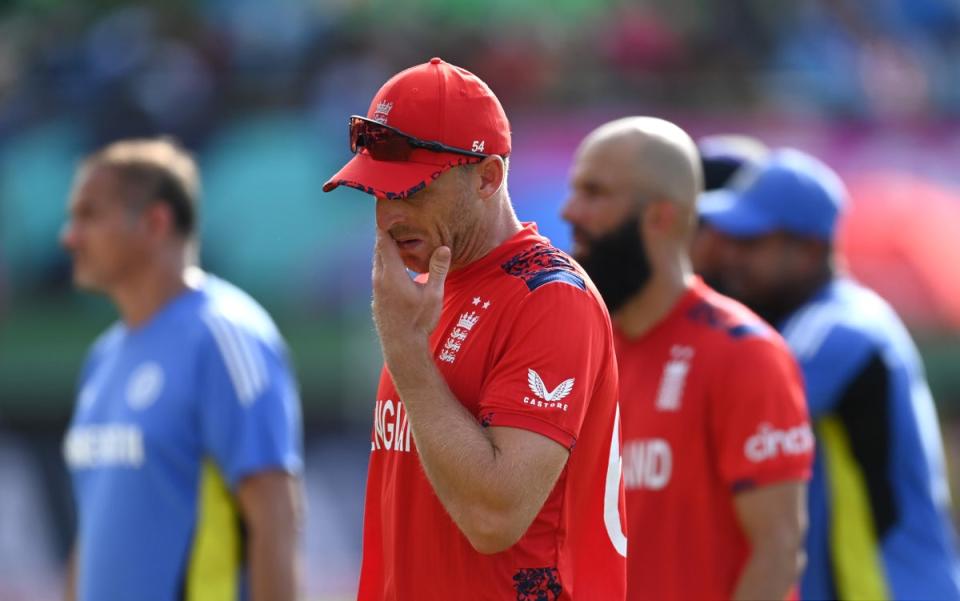T20 World Cup knockout blow may signal the end of an era for England

In the end, they could have played it anytime, anywhere — Christmas morning in Kolkata, Diwali in Durban, on Labour Day at Lord’s — and it would not have mattered.
After all the fretting — at weather forecasts, scripted draws, brainless scheduling and conditions tailored to suit — India were simply miles and miles too good in this T20 World Cup semi-final against England.
On a low, slow surface in Guyana, Rohit Sharma’s side on Thursday night produced a complete T20 display, posting a total of 171 for seven, then spinning England out for 103.
And so it is that for the second time in eight months, India march into a World Cup final clear as the tournament’s standout side, only with the memory of what happened last time to kibosh any misconception that the job is already done.
Having romped through the long pool stage of the 50-over equivalent on home soil last year, India were on the cusp of a first global title across formats in more than a decade when they were stunned in Ahmedabad by Travis Head and an Australia side more seasoned on the loftiest stage.

There will be no such disparity in Barbados on Saturday, with opponents South Africa having at last reached a maiden men’s World Cup showpiece after seven straight semi-final defeats.
That the Proteas, like India, are unbeaten suggests a tournament of convoluted and, at times, outright unfair format has, nonetheless, produced the correct finale.
“We do understand the occasion, but for us it’s important to keep calm and composed,” Rohit said last night. “That helps us make good decisions. We need to make good decisions through the 40 overs.”
Any preparatory advantage South Africa might have had for beating Afghanistan in the opening semi was on Thursday surrendered to yet more travel issues in a tournament dogged by logistical headaches.
The team, along with their families, match officials, journalists and an ICC delegation, were left stranded at an airport in Trinidad for more than six hours while waiting to travel to Barbados, where a minor crash-landing by a small aircraft forced the suspension of incoming flights.
Having been flirting with the journey home for more than a fortnight, England have at last been ejected from what has been a rollercoaster ride, one that even at its conclusion is still a little tricky to assess.
On the face of it, a fourth successive T20 World Cup semi-final suggests the period of white-ball excellence that peaked in 2019 is still alive, despite last year’s abysmal 50-over defence in India.
Scratch beneath the surface, though, and Jos Buttler’s side lost to three of the four Test-playing nations they came up against and only made it out of the initial group stage by hammering minnows Namibia and Oman.
Ahead of the tournament, binary sentiment was that failure would see the back of Buttler as captain and Matthew Mott as head coach and success grant them licence to stay on. Reality has fallen somewhere in between.
There are doubts, too, about the playing futures of Moeen Ali and Jonny Bairstow, as well as Chris Jordan.
The performances of Harry Brook, underused too low down the order early on, stand as a major positive, trumped only by the fact that Jofra Archer came through every outing unscathed.
Not enough, though, to get close to an India side with every base covered.

